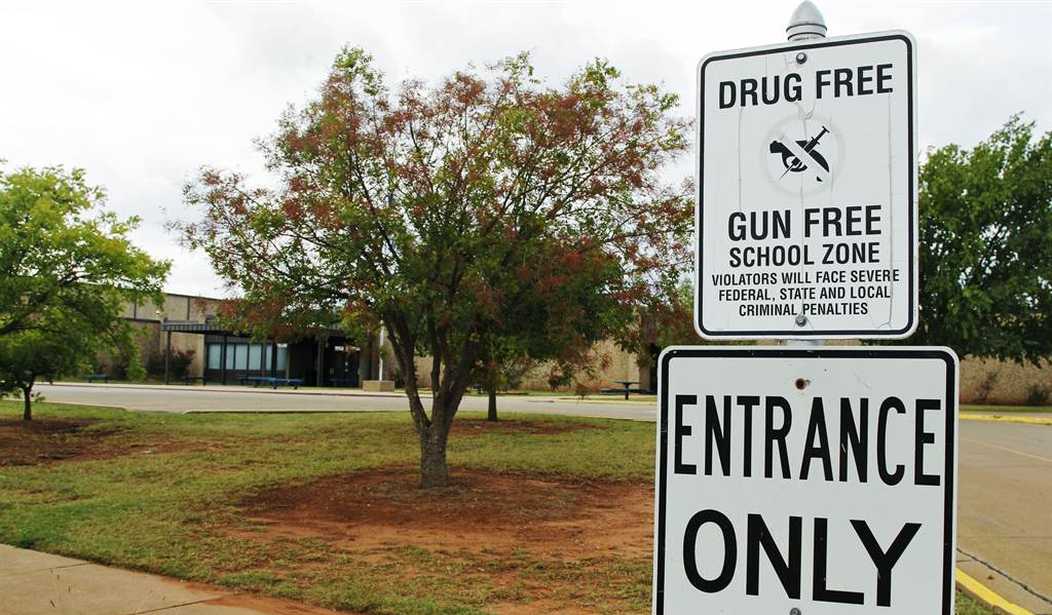All too predictably, less than 24 hours after a murder-suicide occurred at UCLA, the usual suspects came out in full force.
The body of poor William Klug, the 39 year-old professor and father of two who was mercilessly slaughtered by a disgruntled former student, was still warm when ideologues began waxing indignant over the lack of “gun-control.”
Yet while this term may be politically useful as a soundbite, it doesn’t take the thoughtful long to recognize that it isn’t very sound.
For starters, like “climate change,” “limited government,” “pro-life,” and “pro-choice,” “gun-control” is ambiguous to the point of being meaningless. To be more exact, because it can be made to mean virtually anything, it means virtually nothing.
And this brings us to the second point: Even the staunchest supporter of the Second Amendment recognizes both the need for and the desirability of controlling the sale, distribution, and use of firearms. The opponents of “gun-control,” in other words, oppose not government regulation of guns, but unconstitutional or tyranny-conducing government regulation.
That the proponents of “gun-control” either cannot or will not recognize this fact and that in spite of the 20,000 or so laws—i.e. gun-controlling measures—that already exist, they continue to lament an alleged lack of “meaningful” gun-control reinforces the suspicion of many that it isn’t guns, but their opponents, who they want to control.
Thirdly, the gun-controller’s tenacity would have us think that while tens of thousands of existing laws have failed to keep guns out of the hands of would-be murderers, if only we add still more laws we’ll eventually strike upon either that one magic law or that magic limit of laws that will do the trick.
Recommended
Fourthly, not only is this last assumption ridiculous; it is at least as ridiculous to think that any law will suffice to deter a murderous criminal who is determined to gun someone down: Criminals, by definition, violate laws. There are few, if any, areas in life outside of this context of “gun-control” where this proposition isn’t recognized for the self-evident truth that it is.
There’s a reason why we never hear of anyone calling for “murder-control.”
Let’s look at this less abstractly, for when claims are couched in abstractions and generalities, they assume an air of plausibility that gives way to absurdity once their implications are spelled out in all the nit and grit of concrete specifics:
Does anyone who’s genuinely thought about this for more than a few seconds honestly believe that if only we had more—more—“gun-control,” Mainak Sarkar, the Ph.D. murderer from UCLA, would not have killed his former professor?!
UCLA, by the way, is a gun-free zone.
Another city steeped in “gun-control” is Chicago, yet over the Memorial Day weekend alone, nearly 50 shootings occurred in the Windy City. Would but more “gun-control” legislation have done one thing to change this? Perhaps if only Chicago had as many “gun-control” laws as exists presently Al Capone never would’ve succeeded with the Valentine’s Day Massacre.
Finally, it is worth mentioning that the gun-controller never notices and, in fact, doesn’t seem to care, that we never hear of mass shootings and the like in gun-friendly zones. Police stations and National Rifle Association meetings, to cite but two obvious examples, tend to be far safer places as far as random shootings are concerned than, say, gun-free elementary schools and college campuses.
Had Professor Klug been armed with a gun, would his wife and two young children still have him with them today? We may never know, but we do know that, all things being equal, his odds of survival would have been far greater than they actually were.

























Join the conversation as a VIP Member